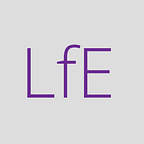Personal and Professional Development
R20–0697 OPTO20200 ASYNC Only
Learning outcomes
After engaging with this support, you will be able to:
- Distinguish between types of reading for different purposes
- Assess how a particular source fits within the wider context of literature and existing knowledge
- Identify and use key databases in your discipline
- Evaluate the strengths and weaknesses of different search tools
- Identify an appropriate tool to use for finding information for your specific purpose
- Identify and use relevant specialist information common in your discipline
- Identify relevant sources from a list of search results
- Develop strategies for assessing the appropriateness of sources to use in your assignments
- Discriminate between good-quality academic sources and other sources
- Evaluate the strengths of online user-generated content as sources of information
Suggested online resources
- Being critical
- Critical appraisal for medical and health sciences
- EndNote online: A beginnner’s guide
- Making referencing easy: introducing EndNote online
- Citing it right: Introducing referencing
- Planning ahead: making your search work
- Getting results
- Knowing where to look: your search toolkit
- Shopping for information: introducing subject databases
- Finding the good stuff: evaluating your sources
- Know your sources: types of information
Tailored content:
Introduction
Hello Optometry second years! This content has been put together for you by the Library to support you in developing key research skills.
After engaging with this support, you will be able to:
- Locate core library resources
- Understand where to find different types of information
- Understand the importance of evaluating information
- Know where to find additional help
What, where and how?
When you are searching for resources to support your academic work and assignments, it is important to consider the following three questions:
- What am I searching for? (this may involve mapping out your keywords)
- Where will I search for it?
- How am I going to search?
Spending some extra time thinking about the answers to these questions before you start searching will make your search more efficient, helping you get to the most relevant information as quickly as possible.
What am I searching for/hoping to find?
In order to perform an effective search you need to know exactly what you are looking for. Often this will require you to examine your research question or topic area in more detail using the steps below.
- Highlight the key concepts in your research question
- Map out synonyms — are there any related concepts or other ways to express the same idea which need considering?
- Consider if there are alternative spellings or word endings for any of the key words you have come up with.
Activity:
Analyse the example question (below) and map out relevant search terms:
Assess the level of compliance with contact lens care among adolescents?
Activity:
The traffic light system:
Now prioritize the list of terms you have come up with using some coloured pens.
- Highlight key terms which are integral to your research in Green
- Highlight terms which are not essential but you would consider in Orange — these terms are negotiable and are more flexible. These might include terms
- Highlight terms which are not required for your research and could detract from the focus of your research in Red. If these terms begin to appear in your search results you may choose to EXCLUDE these.
Where will I search for it?
Embed modular finding information content already in Blackboard:
1.8 Using multiple sources
2.2 Why Should I use Library Search?
2.8 Searching activity in Library Search
3.0 Google Scholar
Embed 1–1.7 Subject databases
How to search?
COPY EMBED section “Additional Search Tools” from Claire’s NURS33060 request in Blackboard
EMBED SLS blog posts:
Advanced search: making use of Boolean operators
Search Operators: Refine AND combine OR NOT?
COPY EMBED section “Making a MeSH of things!” from Claire’s NURS33060 request in Blackboard
EMBED Successful searching podcast https://soundcloud.com/uomlibrary/successful-searching-podcast
Evaluating your sources
3.1 Finding Information Evaluating your sources podcast
Where to find additional help
Embed standard help links:
Help and Support
SLS links
Feedback survey
